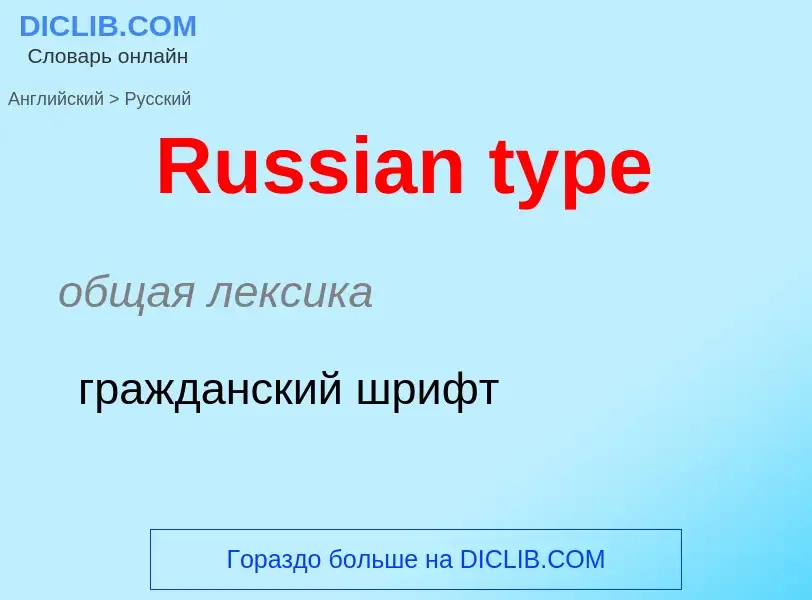Traducción y análisis de palabras por inteligencia artificial ChatGPT
En esta página puede obtener un análisis detallado de una palabra o frase, producido utilizando la mejor tecnología de inteligencia artificial hasta la fecha:
- cómo se usa la palabra
- frecuencia de uso
- se utiliza con más frecuencia en el habla oral o escrita
- opciones de traducción
- ejemplos de uso (varias frases con traducción)
- etimología
Russian type - traducción al ruso
общая лексика
гражданский шрифт
общая лексика
лектотип
общая лексика
клонотип
Wikipedia
Russian grammar employs an Indo-European inflexional structure, with considerable adaptation.
Russian has a highly inflectional morphology, particularly in nominals (nouns, pronouns, adjectives and numerals). Russian literary syntax is a combination of a Church Slavonic heritage, a variety of loaned and adopted constructs, and a standardized vernacular foundation.
The spoken language has been influenced by the literary one, with some additional characteristic forms. Russian dialects show various non-standard grammatical features, some of which are archaisms or descendants of old forms discarded by the literary language.
Various terms are used to describe Russian grammar with the meaning they have in standard Russian discussions of historical grammar, as opposed to the meaning they have in descriptions of the English language; in particular, aorist, imperfect, etc., are considered verbal tenses, rather than aspects, because ancient examples of them are attested for both perfective and imperfective verbs. Russian also places the accusative case between the dative and the instrumental, and in the tables below, the accusative case appears between the nominative and genitive cases.

![Nouns are used in the [[nominative case]] after "one" (один рубль, 'one ruble'). Nouns are used in the [[nominative case]] after "one" (один рубль, 'one ruble').](https://commons.wikimedia.org/wiki/Special:FilePath/Rouble-1961-Paper-1-Reverse.jpg?width=200)
![genitive plural]] (десять рублей, 'ten rubles'). genitive plural]] (десять рублей, 'ten rubles').](https://commons.wikimedia.org/wiki/Special:FilePath/Soviet Union-1953-Bonds-10-Obverse.png?width=200)
.jpg?width=200)
![Linnaeus]], is the type species for the genus ''[[Bufo]]'' Linnaeus]], is the type species for the genus ''[[Bufo]]''](https://commons.wikimedia.org/wiki/Special:FilePath/Bufo bufo (Marek Szczepanek).jpg?width=200)
![dorsal]] and 2) ventral aspect of holotype,<br>3) dorsal and 4) ventral aspect of paratype dorsal]] and 2) ventral aspect of holotype,<br>3) dorsal and 4) ventral aspect of paratype](https://commons.wikimedia.org/wiki/Special:FilePath/JamidesEliotiMUpUnAC1.jpg?width=200)
![Type illustration of ''[[Mormopterus acetabulosus]]'' Type illustration of ''[[Mormopterus acetabulosus]]''](https://commons.wikimedia.org/wiki/Special:FilePath/Mormopterus acetabulosus type illustration.jpg?width=200)
